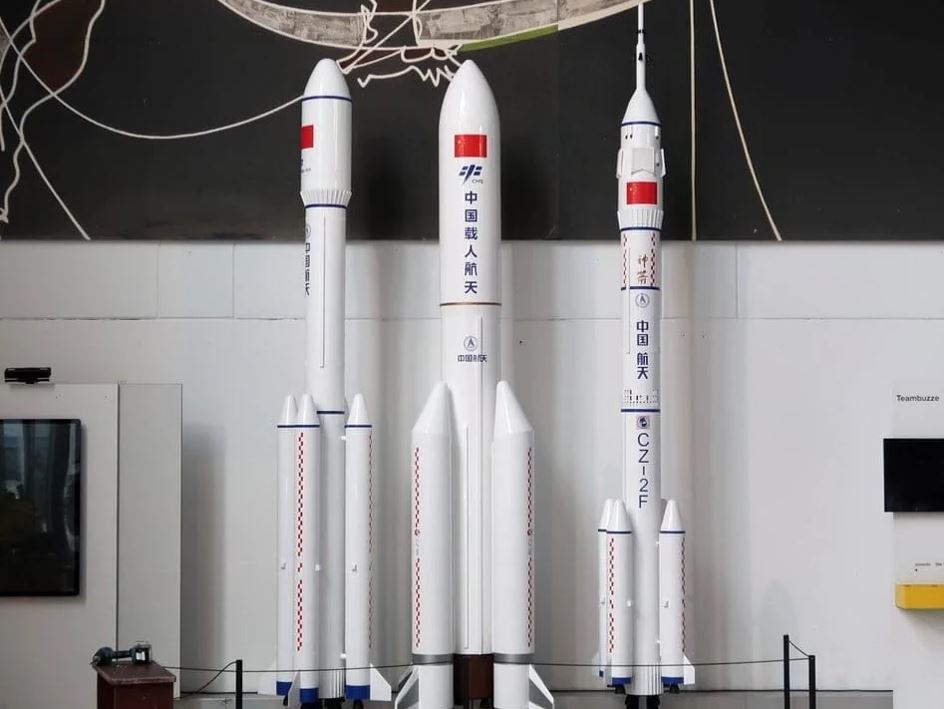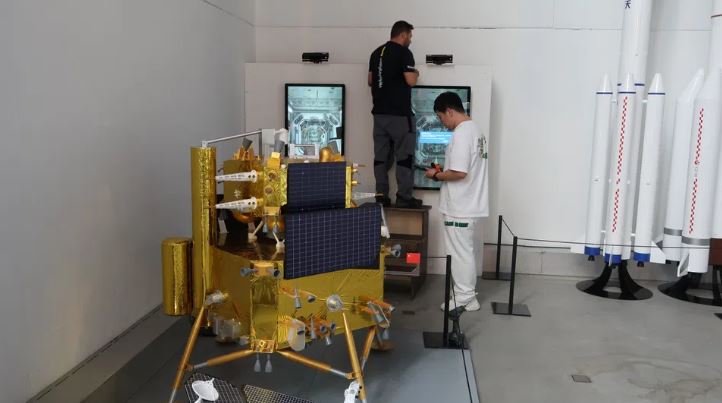Space exploration: not just a question of neutral technology

An exhibition on space travel in Switzerland’s most-visited museum has been generously supported by the Chinese state, Swiss public radio SRF reports.
The Swiss Museum of Transport in Lucerne is a popular destination, especially for fans of technology, who can view train carriages, helicopters, or airplanes from around the world.
Now an exhibition also includes models of Chinese Mars rovers, satellites, and rockets. A mock version of the Chinese space station – the real one has been orbiting the world with a permanent crew for two years – even hangs from the ceiling.

Filling a gap
The Lucerne museum is proud of the exhibits, which are being shown for the first time in the West. As such, they fill a gap, says Daniel Geissmann, the head of exhibitions and collections. “Not only Japan, Russia, or India are involved in space travel – China is also very active,” he says. However, this is not well-known beyond China’s borders.
The Chinese state is also interested in spreading the news of this success, and generously contributed to the exhibition: for example, the museum has been allowed to borrow the models for free, and the cost of transporting them was also paid.
This doesn’t mean the shape of the project is restricted by the Chinese dictatorship, says Geissmann: “This is not a paid exhibition but a curated one.” As such, certain issues were consciously left unaddressed. “We’re not interested in politics, but in technology,” he says.

More
Why is Switzerland refusing to follow EU sanctions on China?
Propaganda?
University of Basel professor Ralph Weber sees things differently. His research area is Chinese foreign policy, and he sees the exhibition in Lucerne as a form of political propaganda.
“When you cooperate with the People’s Republic of China, you are always dealing with the single-party state,” he says. “Especially when it involves something as sensitive as space policy.” As a result, it makes sense that China reaches into its pockets to fund a Swiss exhibition.
Weber adds that he can only partially follow the argument that the exhibition serves to put China’s space programme in relation to others, such as that of the United States.
Western nations are also careful about how they promote their image. But, Weber says, “the US, despite all its difficulties, still has democratic structures and a free press. China doesn’t.”

More
How China is rewriting human rights norms
Swiss-Chinese scientific exchanges
Swiss and Chinese space researchers, meanwhile, were all invited to the opening of the exhibition. Such social gatherings can also be tricky, says Weber. In the US, similar events have been shown in the past to have been linked to espionage activities.
All of this doesn’t mean hosting an exhibition about Chinese space exploration is impossible, but it does make it a more difficult undertaking, Weber reckons.
Translated from German by Domhnall O’Sullivan

In compliance with the JTI standards
More: SWI swissinfo.ch certified by the Journalism Trust Initiative








You can find an overview of ongoing debates with our journalists here . Please join us!
If you want to start a conversation about a topic raised in this article or want to report factual errors, email us at english@swissinfo.ch.